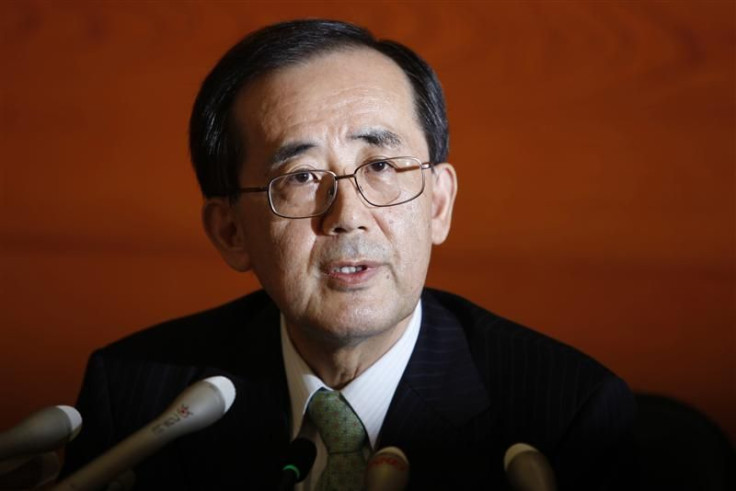Bank of Japan Ups Bond Purchasing Program to $867B

The Bank of Japan said Friday it will expand its balance sheet 5 trillion yen ($62 billion) to 70 trillion yen through purchases of government bonds, exchange-traded funds and Japan real estate investment trusts as the country struggles with years of deflation.
Expanding the central bank's balance sheet aims to lower interest rates and thus lower the value of the nation's currency in a bid to reverse severe deflation.
There have not been many cases where monetary easing has been strengthened while the economy and prices were improving ... We judged that the economy is likely to return to sustainable growth with price stability and we wanted to ensure that happens, Bank of Japan Governor Masaaki Shirakawa said Friday, according to Reuters.
The expansion will bring the total size of the asset purchasing program to roughly 70 trillion yen ($867.5 billion) by June 2013. As part of increased asset purchasing, the Bank of Japan will increase purchases of Japanese government bonds by approximately 10 trillion yen ($124 billion). The bank will also increase purchases of exchange-traded funds and Japanese real estate investment trusts by about 200 billion yen ($2.5 billion).
Although Japan's economic activity has remained more or less flat, it has become increasingly evident that the economy is shifting toward a pick-up phase as positive developments have become widespread, the statement said.
The bank also said that it would extend the remaining maturity of Japanese government bonds and corporate bonds from one to two years to one to three years. The bank also advised that it would keep the benchmark interest rate at 0.1 percent or less.
By continuing to pursue monetary easing with the virtually zero interest rate policy, easing effects are expected to strengthen on the back of progress in economic recovery. The Bank expects ... today's decision to further enhance monetary easing will better ensure the return of Japan's economy to a sustainable growth path, the statement from Bank of Japan said.
Some economist, though, have been critical of the bank's actions.
If the government is trying to bolster growth through monetary easing and intends to postpone tax and other necessary reforms, that would be an unadvisable and in fact impossible strategy, Ryutaro Kono, chief economist for Japan at BNP Paribas said in a clients' note Friday, according to the New York Times.
© Copyright IBTimes 2025. All rights reserved.





















